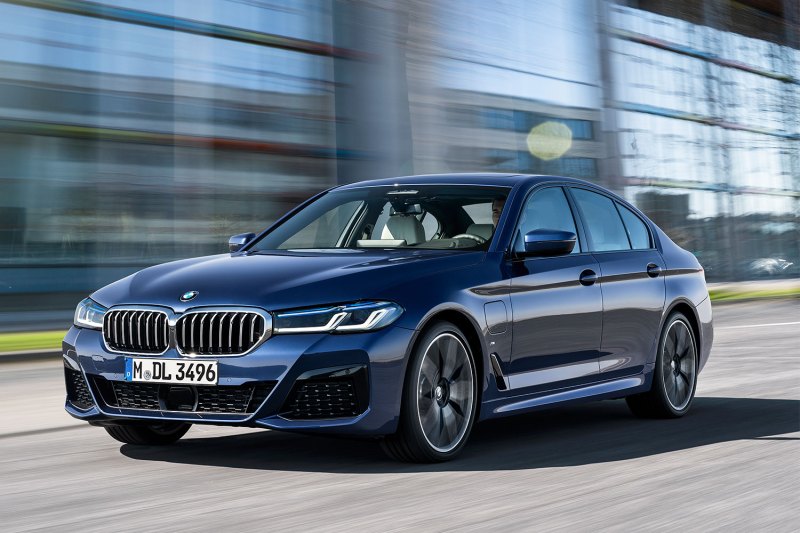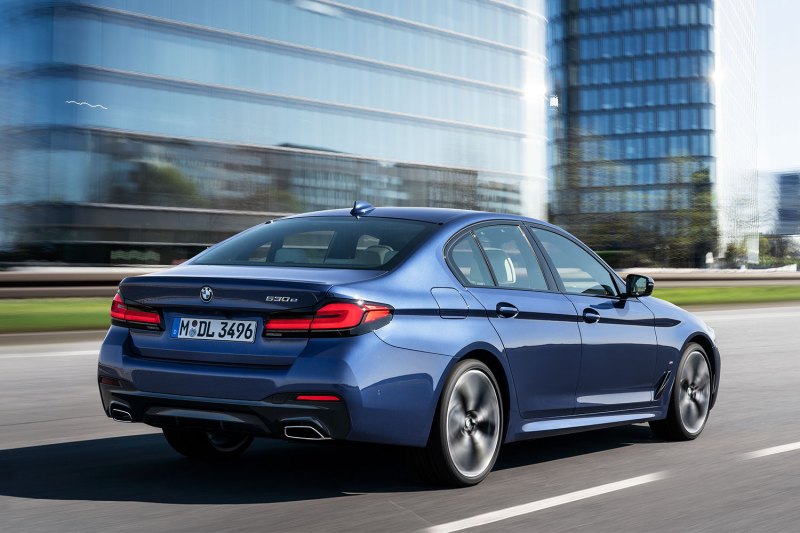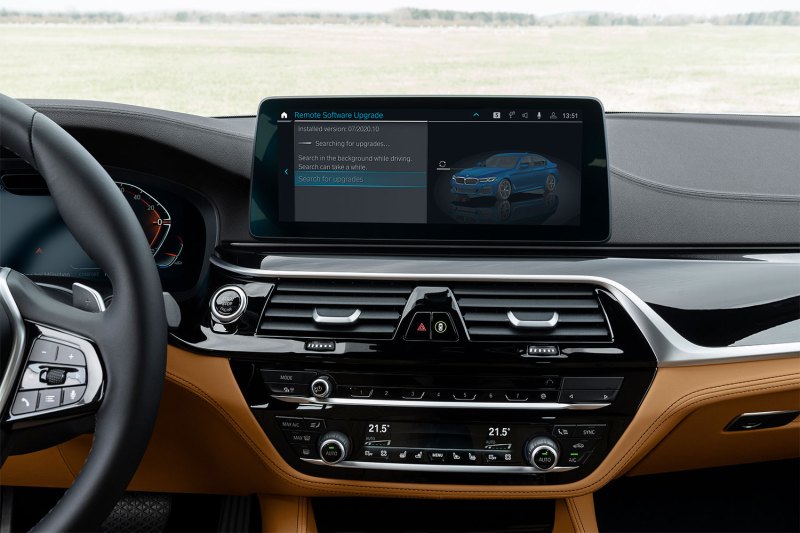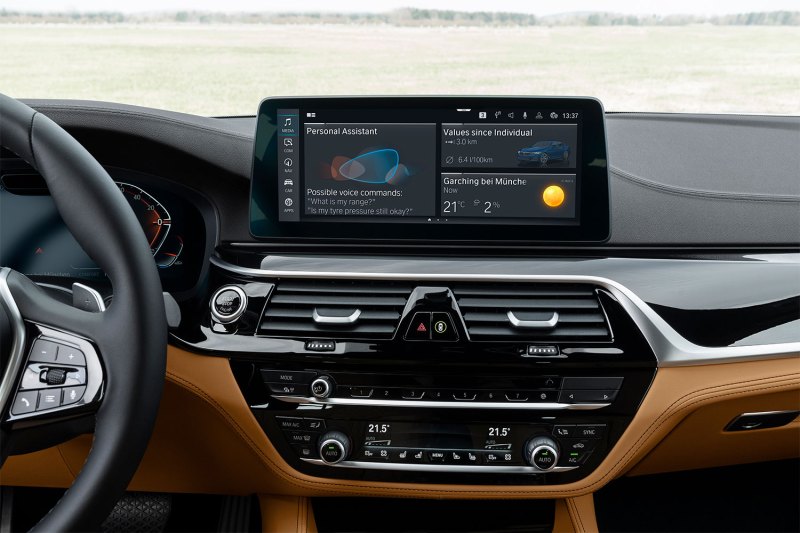For years, German automakers have offered consumers pages and pages of available options. Whether you want carbon fiber trim, red seatbelts, or different colored gauges, German brands will sell them to you for a hefty price. When it comes to regular features, like heated seats and smartphone compatibility, the majority of German automakers lock these behind expensive packages or pricey à la carte structures. It’s an annoying practice, but BMW’s latest in-car subscription service takes all of the worst qualities of its “everything is extra” system and multiples it by 1,000.

Recently, BMW caught a lot of flak for introducing an annual fee of $80 for owners to use Apple CarPlay. While nearly every other automaker in the industry offers Apple CarPlay as a standard feature or at least an upgradeable one with a one-time payment as part of a package, BMW thought it was a good idea to charge owners a yearly fee, because it thought some owners may not need the feature and wouldn’t want to pay for it with the initial purchase of the vehicle. Don’t be fooled; it was a money grab. The automaker eventually went back on the decision, but clearly hasn’t learned from it, because it recently introduced an even more heinous pricing model that would screw consumers over.
Earlier this month, BMW announced that it would be upgrading its latest iDrive 7.0 system. The wireless upgrade isn’t the culprit and it’s certainly nothing to be upset about. It brings quite a few things like wireless Android Auto support, upgraded BMW Maps, and a new version of BMW Intelligent Personal Assistant. The real knife in the back that every consumer should see as Armageddon is the expansion of BMW ConnectedDrive.
BMW, in its own words, “sees the car as a digital platform.” And like a digital device, say like your laptop, BMW sees the future of car ownership as the automaker selling pricey, luxury vehicles to consumers and then requiring them to pay a subscription fee to unlock additional features. Just because your Macbook Pro can run Microsoft Office doesn’t mean it comes with it out of the box. You have to pay for it, just like you do with Photoshop, Final Cut Pro X, or any other application you use. BMW wants to do the same thing, but for car features.

In its press release, BMW specifically calls out high-beam assist, adaptive cruise control, BMW’s IconicSounds Sport (fake noises being pumped into the cabin), BMW Drive Recorder (a high-tech dash cam), and Adaptive M Suspension as features that could become available for purchase as part of a subscription plan in the future. While the automaker hasn’t laid out the way it will work, some features will be available through a monthly subscription fee, while others will be an expensive one-time purchase. Heated seats, for instance, will probably be a subscription thing. In the winter months, you’ll be charged a certain amount to be able to use the feature in your vehicle. In the summer, you don’t have to pay for it if you don’t want to, unless you like throwing money directly into the trash. For things like high-beam assist and adaptive cruise control, we’re sure those are more of a one-time purchase thing.
There are two ways to look at this. From one side, it does offer consumers flexibility. If you don’t want adaptive cruise control or high-beam assist, why pay for them? It means you’ll get a relatively low starting price on a shiny new BMW and can then add any features you want after the purchase. It’s a way to build the perfect car. If you happen to sell the car, the second owner can either choose to continue to pay the subscription prices for the features you chose or simply stop paying for them.
The way the system does things, if I’m being honest, is pretty cool. BMW put out a short clip of someone wanting to purchase high-beam assist. The driver is traveling on a windy, dark road and realizes that he needs high-beam assist at that exact moment. So, he pulls over, scrolls through BMW ConnectedDrive on the touchscreen, and purchases High Beam Assistant for $198 (€176). That’s it! All you have to do is wait five minutes, turn the car off and on again, and the feature’s on your car. It’s genuinely cool.
But on the face of it, this is such a sleazy way of doing business. If other automakers, especially ones outside of the luxury realm, are giving consumers all of these features as standard equipment, why would you ever buy a BMW? No, seriously. BMW’s cars aren’t cheap. The cheapest vehicle starts at around $35,000 and at that price, it’s almost inexcusable to charge consumers fees to get features that are already built into the vehicle. That’s the part that really irks me. In the future, BMW will knowingly build all of its vehicles with the same hardware, they’ve just told the computers not to switch the software on without some extra money.

For BMW, this is an easy way to make some coin. An annual fee or a charge of a set amount of money after the initial purchase raises its profits. It also means BMW can make even more money on the used market. Beyond that, it’s going to cause a lot of mayhem for used car shoppers, as having to figure out what features are currently being subscribed to, how much the initial purchase cost, and the date of when the pay-to-use features will end is going to be a nightmare.
We should point out that this is just in the works and BMW is still deciding whether it will actually introduce the program. But the fact that the company put out an official press release, made a video on how it works, and showcased the tech during a VR press event for some outlets makes us think that there’s a high possibility that it will be introduced.

This is truly an absurd idea. If consumers, shoppers, and anyone remotely interested in vehicles doesn’t yell at BMW for this, it could change the way cars are bought forever. Automakers follow one another; if one comes out with a program that works and makes money, it spreads quicker than the common cold. Wanting to change things to draw consumers in or introducing innovative ways to give consumers features is one thing, going out of your way to screw shoppers over while making them think that they’re getting more flexibility, though, is insane.



